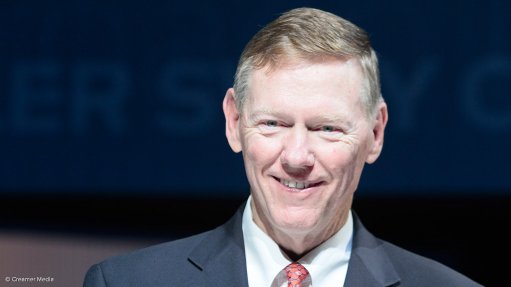
Ford Motor Company CEO Alan Mulally
Photo by: Duane Daws
The recent seven-week-long strike in South Africa’s automotive industry had managed to “dramatically increase” awareness of this business in the country, said Ford Motor Company (FMC) CEO Alan Mulally on Wednesday.
Speaking at a media roundtable held at the Johannesburg International Motor Show, he noted that Ford was talking to everyone involved in the local automotive industry, from trade unions to component manufacturers and government, to ensure that the local arm of the US car maker could, every year, improve its productivity and reliability, as well as the quality of its products.
“We have, up to now, been doing this. The most important thing in South Africa for Ford is to continue doing this every year. Reliability is very important. All stakeholders must understand this. We export to 148 countries from South Africa.”
He added that Ford remained committed to its business in South Africa.
Mulally said Ford was not currently planning on opening any other plants in Africa.
“Our priority is to utilise our capabilities in South Africa to the fullest extent possible.”
Mulally, who had spent 37 years at Boeing before moving to Ford, and currently served on US president Barack Obama’s export council, said there was a growing emphasis on the manufacturing industry on a global level.
“I think everywhere in the world the importance of manufacturing is moving up. There is a reason why in every country 70% of all research and development is associated with manufacturing. It is really being appreciated as a source of wealth.”
He said manufacturing was viewed as the foundation for economic development.
“Everybody – everybody – wants to participate in manufacturing.”
Mulally said the role of government was to create an environment where private business could thrive. He also emphasised the need for public-private partnerships in order for private business to succeed.
Ford’s local business unit, the Ford Motor Company of Southern Africa (FMCSA), produced the Ranger bakkie at its Silverton plant, in Pretoria, and engines parts at a plant in Port Elizabeth.
NEW MIDDLE EAST, AFRICA UNIT
Ford expected to benefit significantly from the formation of a new sales unit, grouping its Middle East and Africa operations under one umbrella, said Mulally on Wednesday.
Prior to this move, North Africa reported to Europe, and Southern Africa to Asia.
Mulally said the reorganisation would place emphasises on this new “growth region” in the world. He added that Ford finally had all the right vehicles at the right price points to support its business in Africa.
“Structurally, we were not set up to grow in the region, but set up to serve the region,” added
FMC Middle East and Africa president Jim Benintende.
He said Ford was currently developing a business strategy for the region, something which had not been done before.
“We have not yet tapped the potential of this market.”
South Africa and Saudi-Arabia currently represented the biggest markets within the new sales region, added Benintende.
FMCSA sold 47 000 vehicles in South Africa in 2012.